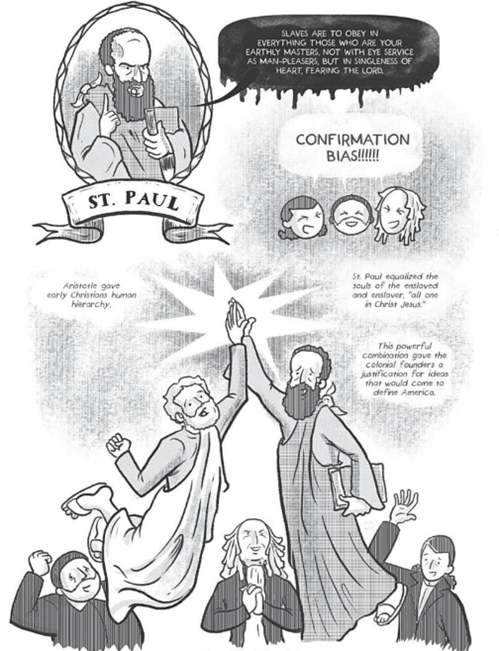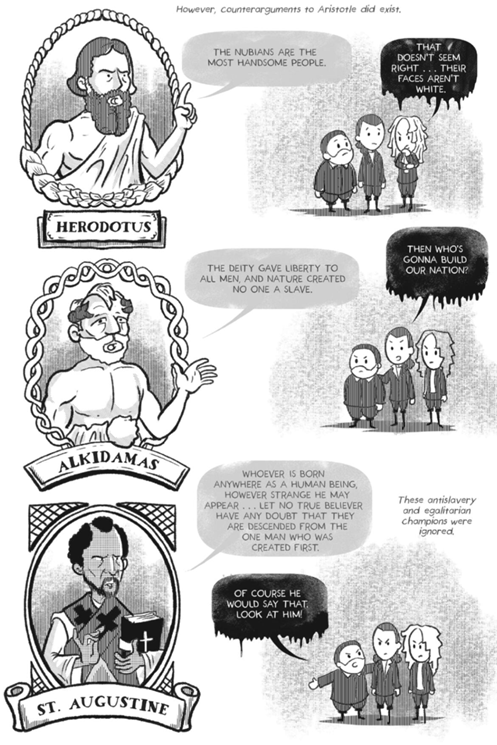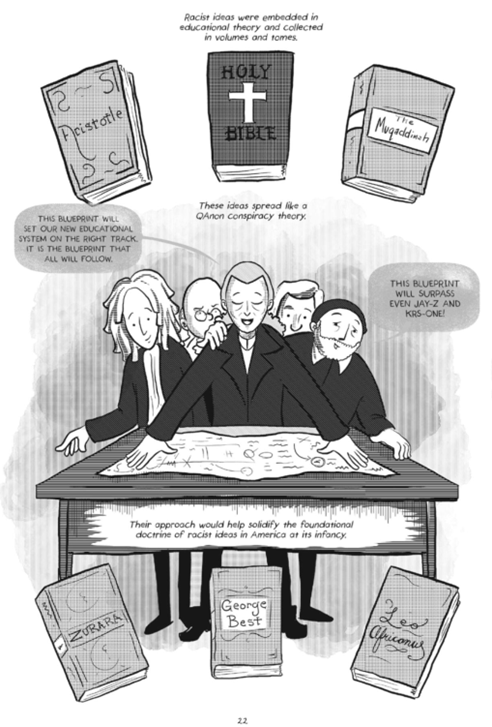My response to the WELS statement on Critical Theory
What follows is the body of a letter written to my District President regarding the WELS statement on Critical Theory. He was kind enough to pass it on to the lead author of the document. This letter is unedited except for a redacted personal contact information and a note about my home congregation.
mea culpa! I struck through part of the fifth claim which said that footnote 80 cannot be found in How to Be an Antiracist. Indeed, it is not in the book, but can be found in a revised annotated 2023 printing. In my defense, I would have thought that two PhD’s would have provided more authoritative citations…
I should lead off by saying there are some very good things in the pastoral brief. The middle paragraph on page 5 is excellent. There is a clear pastoral desire to bring light to those walking in darkness. Good bones. But I do think there are some details which should be revisited to ensure we are really saying what needs to be said.
First, I was quite surprised by the use of "Judeo-Christian religion" on pages 2 and 5. Modern Judaism has nothing to do with historic Christianity, and if you are referring to pre-Incarnation Christians - well, just call them that! Adam and Eve, Noah, Abraham, Moses, etc. all looked forward to the coming of Christ. They were Christians. Lutherans, even.
Second, I don't see a concise definition of critical theory presented, and I don't see critical theory linked to its Marxist roots. A host of characters are listed in footnote 5 without further comment or assessment. Identifying the family tree would allow the COP to address the root, and the rest would follow.
Third, I'm concerned that this document glossed over the current state of critical race theory in our synod. Let me hone in on Lutheran education for a moment. There were two comments made on Lutheran education. First on page 2:
"While we can critique human philosophies such as critical race theory in detail, as we will in this brief, the most effective response will be the practice of Lutheran education in our homes, congregations, and schools."
Then, on page 31:
"We have always been strong at the formation of a Lutheran Christian identity, through Lutheran elementary schools, preparatory schools, area Lutheran high schools, a college of ministry, a seminary, Sunday schools, confirmation classes, Lutheran Pioneers, youth retreats, public worship participation, and the like."
These are fine sounding statements, but they fail to address critical race theory in our synodical education system. I'm just a layman in Alabama but even from 900 miles away I can see critical theory making inroads at MLC: In the fall 2020 edition of InFocus Magazine [1], Dr. Tingting Schwartz was noted for presenting "Getting Educated on Anti-Racism and Breaking the Silence" which described the dialectic of racism/antiracism, Asian support for Black Lives Matter, and covert and overt white supremacy. Presentations and theses from Kelli Green [2] and Katie Gut [3] support Social and Emotional Learning in the Lutheran classroom. Dr. Kari Muente presents philosophies of education and states that she is a constructivist [4]. Most recently the fall 2024 edition of InFocus Magazine [5] shared Dr. LaGrow's presentation on equity which was a tour de force of critical race theory in the classroom [6]! I'm certain none of this is news to the COP but right, wrong or indifferent, these ideas descending from the school of critical theory are in active play and could have been addressed or at least acknowledged as work that needs to be done. Instead of playing around with the “pop culture” thinkers Kendi and Crenshaw (both easily dispatched in a few sentences), perhaps critiquing an educational heavyweight like Gloria Ladson-Billings (“Towards a Critical Race Theory of Education [7]” and “But That's Just Good Teaching! The Case for Culturally Relevant Pedagogy! [8]”) would have been a valuable contribution to confessional Lutheranism.
Fourth, critical race theory is a theology. A poor theology, but a theology nonetheless [9]. There is a story of creation (races). There is original sin (being a white, straight male). There is an analog to baptism (being woke). There is active obedience ('doing the work' of antiracism and allyship). Instead of Martin Luther, there is MLK. Instead of the canon of Scripture, there is the canon of the Woke (Kendi, Crenshaw, etc.). The one thing lacking is redemption - critical theory cannot offer redemption, you must always be criticizing. It is a works-based theological system, and we fail to recognize that to our peril.
Fifth, consider footnote 80. While this is attributed to Kendi's How to Be and Antiracist, page 12, my copy of the book shows this to be a blank page between "My Racist Introduction" and Chapter 1. I had a friend search their Kindle copy and that citation cannot be found [10] (perhaps it is a summary of Kendi's thought from footnote 79?) This being the case, I wonder if anyone from the COP has actually read "How to Be an Antiracist" cover to cover. Or even through the end of chapter 1. If you had, you would have read (page 9) that 'There is no neutrality in the racist struggle. The opposite of "racist" isn't "not racist." It is "anti-racist"'. He then goes on to describe the active work of antiracism. The Bible does not declare an active righteousness in antiracism, therefore in my Christian freedom I could perhaps choose to be antiracist, but not being one doesn't make me a racist. Kendi separates himself from MLK's public statements on colorblindness (page 10; see also 179, 208) which would seem to put him at odds with this pastoral brief, although he seems to be invoked twice in a positive manner. Then he describes the difference (page 15) between White Jesus ("who cleaned people up") or what he calls elsewhere "savior theology" of which he disapproves, and the Black Jesus ("a radical revolutionary") of “liberation theology”, of which he approves [11]. If you had taken these first two sections to heart, then when you read "to be fully human is to use our power to join with other human beings to challenge the forces that prevent the full flowering of humanity" you would have understood that power to be grounded in antiracism and the forces to be challenged to include the historic Christian faith.
Likewise, footnote 36 cites Kendi approvingly, supporting the statement “In the church, all are equal.”:
“Note that prominent antiracism scholar and advocate Ibram X. Kendi acknowledges that “St. Paul equalized the souls of the enslaved and enslaver” and that “this powerful combination gave the colonial founders a justification for ideas that would come to define America.””
I question whether anyone on the COP has actually read the book [12], as neither of these statements are presented as positive affirmations of equality in the Church. Here is page 20:
On previous and subsequent pages, the dripping word boxes are statements Kendi disapproves of. The three heads (John Cotton, Richard Mather and Henry Dunster) stating, “confirmation bias!!!!!” appear on the previous and subsequent pages. On the previous page (below) they are negatively assessing philosophers describing the equality of man (and deriding St. Augustine for being ‘black’):
Paul’s statement on slaves obeying masters satisfies their confirmation bias where the previous philosophers challenged their views. The combination of Aristotle endorsing human hierarchy and St Paul equalizing souls coram deo allows, in Kendi’s view, the colonial founders to subjugate black bodies, and, in Kendi’s view, this defines America. Two pages later Kendi states this explicitly: Aristotle and the Bible among other documents would “solidify the foundational doctrine of racist ideas in America.”
For further substantiation, read Part 1 of his book Stamped from the Beginning: The Definitive History of Racist Ideas in America, from which the graphic novel is adapted. Early in chapter 1, Kendi describes the Apostle Paul as laying out a tripartite hierarchy of heavenly master, earthly master, and slave. 1 Cor 7:22 subjugates earthly masters to God, and Colossians 3:22 [13] subjugates slaves to earthly masters. Kendi notes a ‘crucial caveat’ in Galatians 3:28, namely the clause ‘all one in Christ Jesus’ which restricts ‘neither slave nor free’ to only apply to slaves’ souls (conversely, not to their bodies). In Kendi’s materialistic interpretation of Galatians 3:28, this passage allowed the Christian earthly master to baptize his slave and bring him up in the Christian faith (their soul being equal before God) while exploiting his body (their bodies being unequal) for physical labor. All while remaining an upstanding citizen and member of the Church. Allowing Kendi to interpret Kendi, I do not see how the COP can approvingly cite Kendi as positively supporting the statement “In the church, all are equal” in footnote 36. He clearly does not.
Finally, we need to recognize that there is no open marketplace of ideas. A marketplace connotes both an even playing field and validity to the participants in the marketplace. We are the hegemonic discourse that all those groups in footnote five have their barbs pointed at. As Dr. Gregory Schulz would say, "This is Psalm 2 stuff." We don't compete. Christ has already won; it is merely a matter of enlightening those lost in the dark marketplace of ideas.
Happy to discuss or clarify as needed,
Dr. Philip Hahn
[1] https://mlc-wels.edu/publications/wp-content/uploads/sites/43/2020/11/InFocusFall2020-WEB.pdf, pg. 34. Professor Schwartz’ presentation can be found here: mp.weixin.qq.com/s/QcrYzmsYrzFhVQZf5niuug
[2] Ibid, pg. 33
[3] https://mlc-wels.edu/library/wp-content/uploads/sites/14/2020/08/Gut-Thesis-Approved.pdf
31m30s. Note that on page 34 of the CRT pastoral brief, constructivism is identified as contrary to Biblical epistemology.
[5] mlc-wels.edu/publications/wp-content/uploads/sites/43/2024/10/InFocusFall24-WEB.pdf, pg. 33, which references the following YouTube video
[6] This is not an isolated incident. While at the University of Wisconsin-Green Bay, she describes Critical Race Theory as a useful for impacting and engaging with equity in her classroom at a Predominantly White Institution (PWI), timestamp 15 minutes.
[7] https://www.researchgate.net/publication/358471863_Toward_a_Critical_Race_Theory_of_Education
[8] https://www.econedlink.org/wp-content/uploads/2020/06/LadsonBillings_Culturally-Relevant-Pedagogy.pdf
[9] Interestingly this is laid out most clearly by atheist commentators: James Lindsay (“The Theology of Marxism”), John McWhorter (“Woke Racism: How a New Religion has Betrayed Black America”) and Andrew Doyle (“The New Puritans”)
[10] Nor is it found in Stamped from the Beginning: The Definitive History of Racist Ideas in America.
[11] Kendi provides a concise 3-minute summary in this video:
[12] I also question why we are citing a graphic novel adaptation and not the original text: Stamped from the Beginning: The Definitive History of Racist Ideas in America, 2016.
[13] Note, Kendi is sloppy here, citing “1 Corinthians” for the first passage which is quoted, and quoting the second passage without providing the citation to Colossians. The citation Galatians 3:28 is provided with only the snippet “all one in Christ Jesus”.






